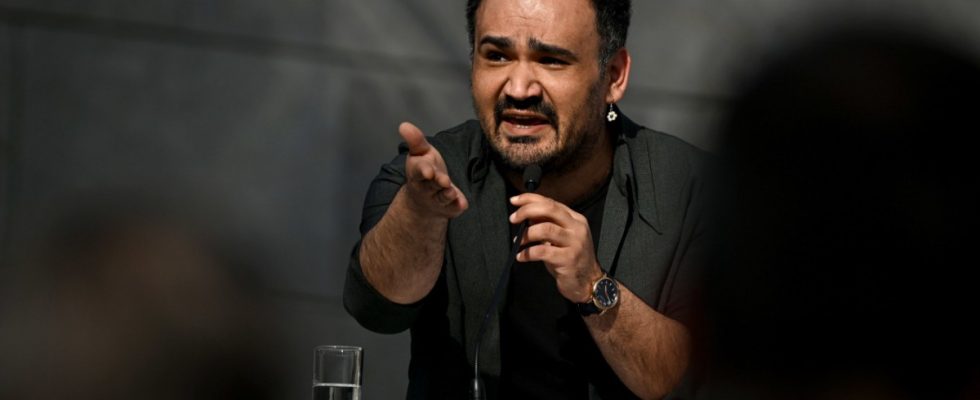For the first time in three years, the Leipzig Book Fair prize, which is endowed with EUR 20,000 each, was presented on Thursday afternoon just as it used to be, not only with an invited audience, but also in the middle of the real hustle and bustle of the Book Fair in the light glass hall. “What a great feeling!” said a visibly relieved trade fair boss, Oliver Zille, in greeting, “it took a damn long time, really good, strong things are certain.”
The seven-strong jury of critics then awarded the prize in the fiction category to the poet, writer and publisher Dinçer Güçyeter for his novel “Unser Deutschlandsmärchen”. Güçyeter, who was born in Nettetal in 1979, still finances his own small publishing house Elif as a forklift driver. “Our Germany Fairy Tale” is about the story of his own immigrant family and, according to Güçyeter in his acceptance speech, should also be a book “for all women in the factories, in the brothels”. The Germany in this book, according to Anne-Dore Krohn in her eulogy, is “a landscape full of cracks, but still the place where the lyrical self finds its place”. A book that “lets the words fly to heaven” but doesn’t spare “the humiliation on the ground”.
The best non-fiction book was not awarded to the widely acclaimed books “Gekränkte Freiheit” by Carolin Amlinger and Oliver Nachtwey or Jan-Philipp Reemstma’s “Christoph Martin Wieland – The Invention of Modern German Literature”, but rather “Bittere Brunnen” by Regina Scheer about the life of the Jewish socialist Hertha Gordon-Walcher. Gordon-Walcher was Clara Zetkin’s secretary in the 1920s and later companion of Rosa Luxemburg, Bertolt Brecht and Willy Brandt. According to the jury, Regina Scheer has succeeded in writing a great narrative non-fiction book, a “precise documentation of political connections, traces of which shape the present”.
The crowd at the fair is big, things could go better than expected
Johanna Schwering won in the Translation category for her adaptation of the coming-of-age novel “Die Cousinen”, set in the 1940s by 85-year-old Argentinian author Aurora Venturini. The jury praised Schwering for the feat of having found a “language for the family relationships characterized by dullness, poverty and abuse” in German, which is what the tough but never cynical novel is about.
With 2000 exhibitors from 40 countries, the fair is only about 80 percent of its pre-pandemic size at the restart, but most of the big publishers are back on board. The trade fair prevented their cancellations last year. Exhibition boss Oliver Zille is cautious and only hopes for a total of 130,000 visitors by Sunday, which would only correspond to around 60 percent of the visitors in 2019. The rush already on Thursday morning could indicate that things will go much better. The parallel reading festival “Leipzig Reads” in the city is smaller than three years ago, but 3,000 events at 350 locations sound like a big comeback.

